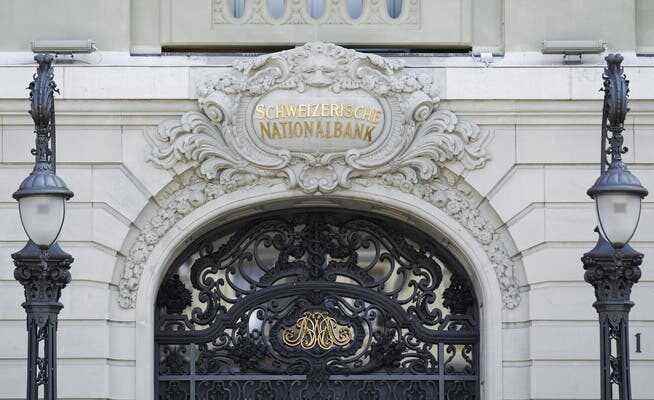Inflation is lower in Switzerland than in Europe, but still too high. Next week, the Executive Board of the National Bank has the chance to show that it is acting independently and takes its price stability mandate more seriously than the ECB. The time is ripe for a rate hike.
Will the SNB take the first interest rate step next week?
In Germany, consumer prices rose by an alarming 7.9 percent year-on-year in May; 0.5 percentage points more than in April. Import prices increased by a staggering 31.7 percent in April. This week, the Governing Council of the European Central Bank (ECB) finally decided to announce an initial, small rate hike for July.
In Switzerland, consumer prices rose by 2.9 percent in May compared to the same month last year; that is 0.4 percentage points more than in April. Import prices increased by 11.3 percent in April. The energy prices, which have more than doubled within a year, make a significant contribution to this. But the prices for machines, metals, computers and food are also rising.
The Swiss National Bank (SNB) will hold its quarterly assessment of the situation next week. On Thursday morning, the three-person board of directors in Bern must explain the decision that was made. The usual phrases, according to which the National Bank will maintain its expansive monetary policy, leave the key interest rate at -0.75 percent and is willing to intervene in the foreign exchange market if necessary, will no longer suffice.
The majority of market participants seem to be assuming that the SNB will wait until autumn before taking interest rates, when the ECB has acted and there is more clarity about the further course of inflation.
The rise in energy prices caused by the war in Ukraine cannot last forever and the supply chain problems caused by the pandemic should ease again. The prices of domestic goods in Switzerland have only risen by 1.5 percent over the past year. However, for more than a year now, the SNB has had to adjust the starting point of its inflation forecast upwards in every assessment of the situation. She will do it again next week.
Inflation is not destiny. In Switzerland, the National Bank can ensure price stability by allowing the Swiss franc to strengthen, which lowers the prices of imported goods. Mainly because of this, inflation in this country is still lower than in Germany. In addition, monetary authorities can prevent inflation from spiraling out of control by making it clear to market participants that they will not allow this to happen.
While inflation has climbed above its target, the real exchange rate of the franc against the euro is currently even slightly below its long-term trend. And even if energy price hikes and supply chain problems don’t last forever, inflationary pressures are unlikely to abate anytime soon.
The producers will continue to want to pass on their increased costs to their customers. The more consumers feel this and the sooner they begin to doubt the will and ability of the SNB to quickly bring inflation back below 2 percent, the more they will insist on larger wage increases in the second half of the year. But once the wage-price spiral really starts to turn, fighting inflation becomes much more difficult.
The SNB should therefore show next week that it takes its price stability mandate more seriously than the ECB and send a clear signal. When she concluded in early 2015 that the ECB would loosen monetary policy too much to justify sticking to the exchange rate floor, she did not wait.
Now it can once again prove its independence and credibility by not waiting for the ECB to raise interest rates. After seven and a half years, it is time to at least move away from the “emergency measure” of negative interest rates of -0.75 percent. This will strengthen the franc, although the extent remains limited. A balance sheet reduction can then follow in the medium term.
